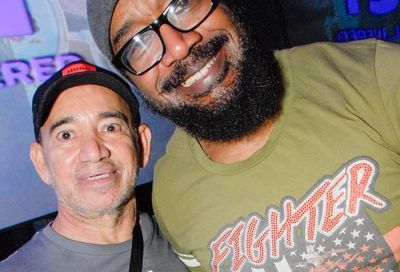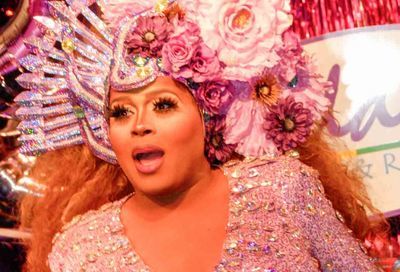Questionable Consumption
Navigating the marketing maze demands a dose of skepticism
A couple of weeks ago, I went to Tampa, Fla., to spend a weekend with my mother and two of my teenaged San Diegan nephews who were wrapping up a week with granny. Since my mother lives about half an hour north of Tampa in Port Richey, I chose a hotel for the four of us in the city.
If you know Port Richey, that makes absolute sense to you. If not, all you need to know is that miniature golf is the recreational highlight and the Cracker Barrel seems to do just fine.
Yet in Tampa, a Cracker Barrel-esque moment awaited me at the hotel I’d chosen.
Using the hotel’s business center for some free Internet, I tried to pull up a story I’d written a couple years ago about the ”village concept.” I wanted my mother to read about this system whereby residents, particularly the elderly, subscribe to their neighborhood village for some reasonable amount. In return, if they need a gutter cleaned, bulb changed or a ride to the grocery store – that sort of thing — the village network will assist. In a nutshell, that was the article.
But I couldn’t pull it up. Why not? The screening software didn’t like the word ”lesbian.”
I was stunned, but figured I would just deal with it through proper channels once I was back in D.C.
First, I contacted the company that made the filter, who put the blame squarely on hotel management. So the buck stopped with the Hilton Hotels Corporation. For days I’ve been trying to get a comment from them. Is this filter company-wide? Was it Tampa-specific? Do they want to defend ”lesbian” as a web-surfing deal breaker, or will they promise to look into this offensive filter? I’m still waiting for answers, but I give Hilton the benefit of the doubt.
The Human Rights Campaign’s 2010 Corporate Equality Index gives Hilton a rating of 90. I respect that.
With instances such as this, I’m forced, however, to consider our community’s relationship to corporations, which strikes me as loaded. It’s not that I’m knocking capitalism. I think the Soviets taught us, if nothing else, that profit is about the only motivator society respects. I suppose fear would work, too, but that’s not an alternative I’d advocate. That’s not to say I’m an absolute enthusiast for unfettered free markets. Let businesses pursue profits, while government sets the rules.
The rub is that at the end of the day, regardless of gay-gala sponsorships or marketing campaigns aimed at the LGBT community, the bottom line of any business is just that: the bottom line. ”Happy Meals” may indeed make children happy, but that is not their purpose. Their purpose is to make money for the McDonald’s Corporation. I’ve got no beef with that.
But as more businesses cater to the LGBT community, it’s important to remember that a familiar corporate logo draped in a rainbow flag is not there to pass ENDA. It’s there to make that company money. Some companies realize that embracing diversity can make them stronger, or that catering to the LGBT community can increase client base. That’s super. Some, meanwhile, don’t want to risk a boycott from social conservatives, and others — I’m looking at you Exxon Mobil — are doing just fine while embracing homophobia as policy.
Hilton is part of the dance like all the rest. And in the company’s calculations, management has pushed the company into gay-friendly territory. So the lesbian-filter is annoying, but not much more, because I have no emotional investment in Hilton. Nor in any other profit-making venture that is not my own. I may want every company to do the right thing, but it’s common sense that the bottom line comes first.
We have clout as voters and as consumers. But as with political speeches, we need to filter marketing messages with a sizable grain of salt.
Support Metro Weekly’s Journalism
These are challenging times for news organizations. And yet it’s crucial we stay active and provide vital resources and information to both our local readers and the world. So won’t you please take a moment and consider supporting Metro Weekly with a membership? For as little as $5 a month, you can help ensure Metro Weekly magazine and MetroWeekly.com remain free, viable resources as we provide the best, most diverse, culturally-resonant LGBTQ coverage in both the D.C. region and around the world. Memberships come with exclusive perks and discounts, your own personal digital delivery of each week’s magazine (and an archive), access to our Member's Lounge when it launches this fall, and exclusive members-only items like Metro Weekly Membership Mugs and Tote Bags! Check out all our membership levels here and please join us today!




















